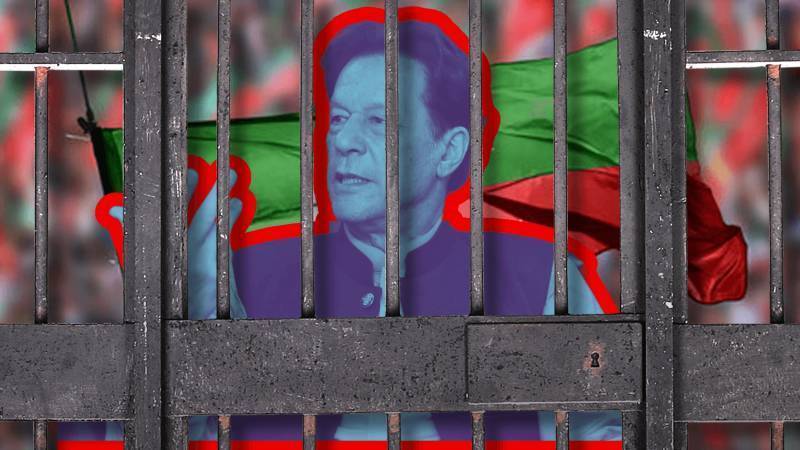
It was difficult to swallow
Is Richard Grenell genuinely concerned about Imran Khan’s imprisonment? Donald Trump’s trusted confidant and nominee for special envoy has plunged himself into relentless online exchanges with Pakistani politicians and journalists on the subject of Imran Khan. Recently, he even took aim at the White House spokesman, Matthew Miller, who had said: “The United States is concerned by the sentencing of Pakistani civilians in a military tribunal and calls upon Pakistani authorities to respect the right to a fair trial and due process.” Grenell’s sharp retort was: “You are late. And this is too little and too weak. Speak plainly. Free Imran Khan.”
For me, this was perplexing. It is common knowledge that US officials prioritise their national interests above all else. So, what could be the United States’ stake in freeing Imran Khan? Why are they even concerned? No, this cannot simply be attributed to lobbying by the PTI. Even if wealthy Pakistani Americans played a role in Donald Trump’s electoral success, their influence cannot possibly stretch this far. And even if, for the sake of argument, we allowed ourselves to entertain the notion, why would Matthew Miller take such a combative stance against the Pakistani military establishment, which ostensibly favours Khan’s rivals?
But it doesn’t end there
According to Reuters on 24 December: “The British government’s Foreign Office added that ‘trying civilians in military courts lacks transparency, independent scrutiny, and undermines the right to a fair trial.’” Additionally, “The European Union stated that the sentences were ‘inconsistent with the obligations that Pakistan has undertaken under the International Covenant on Civil and Political Rights.’” The EU has even issued a veiled warning to Pakistan, threatening to revoke its Generalised Scheme of Preferences Plus (GSP+) status. As reported by VOA on 22 December, this arrangement “grants zero import duties on more than two-thirds of tariff lines when exporting to the European Union, providing Pakistan, a cash-strapped nation, with a major and crucial trade partner.”
It is worth considering how the EU’s position may be shaped by US influence, particularly given Europe’s precarious security landscape following the war in Ukraine. With the spectre of Russian aggression looming, European nations remain reliant on unwavering American support.
By expressing support for Imran Khan, they align themselves with a leader who enjoys significant popular backing. This could win over Pakistani public opinion while simultaneously countering the anti-American sentiment that has built up over the past two decades. In this scenario, it’s a win-win for the US.
I am merely attempting to connect the dots to form a coherent picture
The question raised at the outset remains both intriguing and unresolved. To explore this further, I addressed it during my talk show, Political Zone, to Dr Hasnain Javed, an economist by profession who has increasingly become a prominent political voice with a sharp understanding of geopolitical affairs. His interpretation of the situation was even more thought-provoking.
According to Dr Javed, the statements and tweets emanating from American, British, and European quarters are intertwined with broader developments in the Middle East. The underlying goal, he suggests, is to pressure Pakistan’s government and military establishment into recognising Israel. This, he argues, is why the current government in Pakistan must remain in place despite its waning popularity. When asked why Shahbaz Sharif would comply, Dr Javed explains that Sharif faces a stark choice: contend with the repercussions of the Model Town case involving 14 murders or acquiesce to external demands and enjoy his office a little longer.
But the question remains: how does the call to “free Imran Khan” fit into this equation?
The Americans, according to Dr Javed, are playing a calculated game. By expressing support for Imran Khan, they align themselves with a leader who enjoys significant popular backing. This could win over Pakistani public opinion while simultaneously countering the anti-American sentiment that has built up over the past two decades. In this scenario, it’s a win-win for the US.
So, what happens to the Sharifs after they have complied? Dr Javed suggests they have little to lose. Their political careers are already in decline. Once they fulfil their role, they could simply seek asylum in a European country or even the United States, citing security concerns after doing the necessary (the right) job. With the Sharifs out of the picture, Imran Khan could then be reinstated, ostensibly to appease the public, again with US support. This would stabilise the political situation in the aftermath of recognising Israel and restore order – at least for some time.
But if this chain of events were to unfold as Dr Javed predicts, what happens next?
The Israeli embassy opens in Islamabad. Diplomatic and potential trade relations are established between the two nations. Unsurprisingly, Iran is dismayed and disappointed. China, however, appears perfectly content. The Russians remain indifferent, while the Saudis may well follow suit if they haven’t already.
In this new reality, Pakistan seeks a fresh narrative, one that many of its old-guard thinkers could never have envisaged. The country begins to embrace new voices that align with these transformed circumstances – voices that unequivocally reject the jihad narrative. This is a new Pakistan, one that recognises the need to rewrite its textbooks to reflect its evolving identity.
Pakistan’s newfound ally, Israel, may soon call in a favour. The request is simple: if we take a hard line on Iran, stay neutral. Don’t react. That seems manageable. But then you return the favour: if we decide to settle scores with India, look the other way. Deal? It’s not easy, but we’ll find a way.
But as I allowed myself to get carried away imagining a future that may or may not come to pass, one question lingers: where do Imran Khan and his ideology fit into all of this? Perhaps I’ve entirely missed that point – or maybe he simply doesn’t fit into the picture at all.

